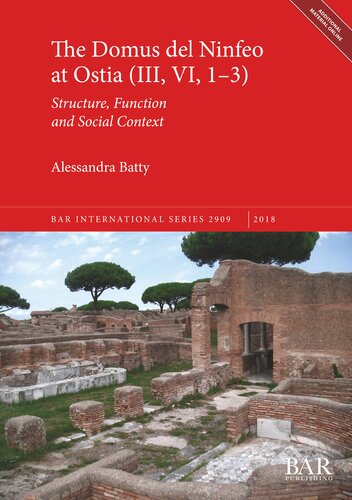

Most ebook files are in PDF format, so you can easily read them using various software such as Foxit Reader or directly on the Google Chrome browser.
Some ebook files are released by publishers in other formats such as .awz, .mobi, .epub, .fb2, etc. You may need to install specific software to read these formats on mobile/PC, such as Calibre.
Please read the tutorial at this link: https://ebookbell.com/faq
We offer FREE conversion to the popular formats you request; however, this may take some time. Therefore, right after payment, please email us, and we will try to provide the service as quickly as possible.
For some exceptional file formats or broken links (if any), please refrain from opening any disputes. Instead, email us first, and we will try to assist within a maximum of 6 hours.
EbookBell Team

4.1
50 reviewsThis book is the first in-depth analysis of one of the most remarkable monuments of Ostia, the ancient port town of Rome: The Domus del Ninfeo (III, VI, 1-3). Originally built as a multi-storey complex during the reign of Hadrian, in Late Antiquity it was converted into a ground-floor mansion to serve the dominus and his extended family. During this phase the building was enriched with marble floors and the elegant nymphaeum that gives it its current name. This study aims to present a comprehensive picture of the Domus, analysing not only the many structural changes but also its topographical setting, historical context and social inferences. The text also features the archaeological drawings that were made during the study and the results of a clearance in an area of the house previously neglected; the latter has provided invaluable evidence for interesting structural modifications that were previously completely unknown.